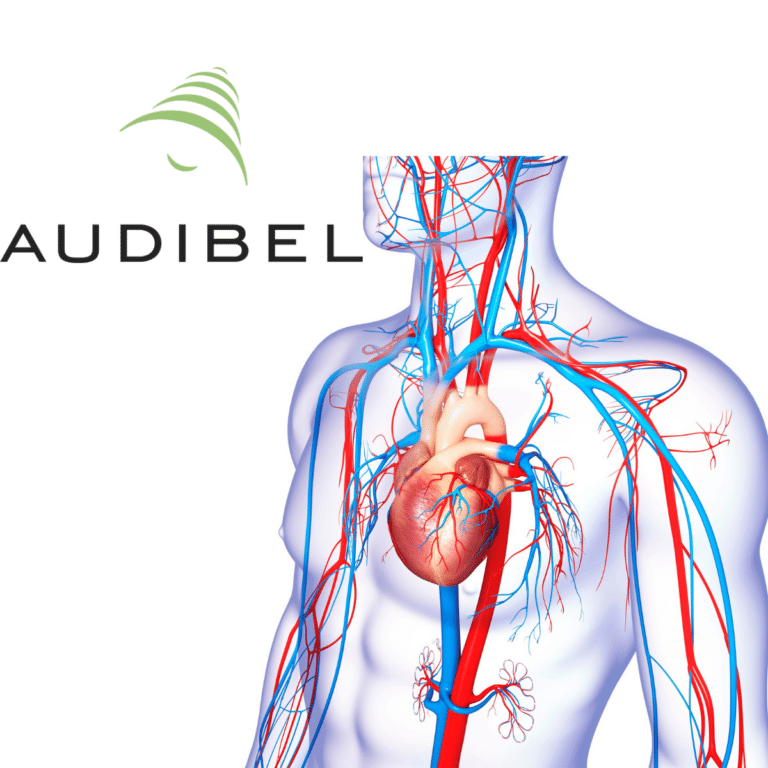When it comes to our overall health, we often think about taking care of our heart and our hearing as separate concerns. However, emerging research is shedding light on the intricate connection between cardiovascular health and hearing loss. Maintaining a healthy cardiovascular system is not only crucial for our heart and blood vessels, but also for the delicate structures of our ears. In this article, we will explore the relationship between cardiovascular wellness and hearing loss, and why it’s important to prioritize both aspects of our health.
Understanding the Cardiovascular System
To understand the link between cardiovascular health and hearing loss, it’s important to first grasp the role of the cardiovascular system in maintaining overall health. The cardiovascular system consists of the heart, blood vessels, and blood. It plays a vital role in delivering oxygen and nutrients to all parts of the body, including the ears. Common risk factors for cardiovascular issues include high blood pressure, high cholesterol, and diabetes. These conditions can have a significant impact on our overall health, including our hearing abilities.
The Connection Between Cardiovascular Health and Hearing Loss
There are several shared risk factors and underlying mechanisms that link cardiovascular health and hearing loss. Reduced blood flow and oxygenation to the delicate structures of the inner ear can contribute to hearing loss. The inner ear is responsible for converting sound waves into electrical signals that are then interpreted by the brain. When blood flow and oxygen supply to this region are compromised, it can lead to damage and a decline in hearing function.
In addition to reduced blood flow, inflammation and oxidative stress play key roles in both cardiovascular diseases and hearing loss. Inflammation is the body’s natural response to injury or infection, but chronic inflammation can contribute to various health issues, including cardiovascular problems and hearing loss. Oxidative stress occurs when there is an imbalance between the production of free radicals and the body’s ability to counteract their harmful effects. This oxidative stress can damage the delicate hair cells in the inner ear, leading to hearing loss.
Research Findings
Numerous studies have found compelling evidence to support the relationship between cardiovascular health and hearing loss. For example, hypertension, or high blood pressure, has been linked to an increased risk of hearing loss. The inner ear relies on a steady blood supply, and high blood pressure can disrupt this flow, potentially leading to hearing difficulties. Similarly, individuals with diabetes are more likely to experience hearing loss due to the effects of high blood sugar levels on the nerves and blood vessels of the inner ear.
Age-related hearing loss, also known as presbycusis, has also been associated with cardiovascular risk factors. Research suggests that atherosclerosis, a condition where the arteries become narrowed and hardened due to a buildup of plaque, can impact the blood vessels of the inner ear and contribute to hearing loss. High cholesterol levels, a major risk factor for atherosclerosis, may accelerate the progression of age-related hearing loss.
Lifestyle Changes for Improved Cardiovascular and Hearing Health
To improve both cardiovascular and hearing health, it is essential to make lifestyle changes that prioritize overall wellness. Regular exercise, such as brisk walking or swimming, can contribute to better cardiovascular health by strengthening the heart and improving blood circulation. A healthy, balanced diet that includes fruits, vegetables, whole grains, lean proteins, and healthy fats can also support cardiovascular wellness and overall well-being.
Managing cardiovascular risk factors is critical to prevent or delay hearing loss. If you have high blood pressure, diabetes, or high cholesterol, work with your healthcare provider to develop a plan for managing these conditions. This may include medication, lifestyle modifications, and regular monitoring of your health. Regular cardiovascular check-ups and hearing screenings can help detect any potential issues early on, allowing for timely intervention and treatment.
Protecting Your Hearing
In addition to taking care of your cardiovascular health, it is important to protect your hearing from noise-induced damage. Exposure to loud noises, whether it’s from occupational or recreational activities, can cause irreversible damage to the delicate hair cells in the inner ear. To reduce your risk, use hearing protection devices such as earplugs or earmuffs when in noisy environments. Limiting exposure to loud sounds and taking breaks during prolonged exposure can also help protect your hearing.
For those experiencing hearing loss, hearing aids can greatly improve communication and quality of life. Modern hearing aids are sophisticated devices that amplify sounds and enhance speech clarity, making it easier to engage in conversations and enjoy various activities. If you suspect you have hearing loss, seeking a comprehensive hearing evaluation from a qualified audiologist is the first step towards finding the right solution for your needs.
Our cardiovascular health and hearing abilities are intricately connected, and maintaining both is essential for our overall well-being. The link between cardiovascular wellness and hearing loss highlights the importance of prioritizing our cardiovascular health through lifestyle modifications, regular check-ups, and proactive management of risk factors. By protecting our cardiovascular system and safeguarding our hearing, we can continue to fully engage with the world around us and enjoy optimal health and quality of life. Take charge of your cardiovascular and hearing health today, and experience all that life has to offer.


